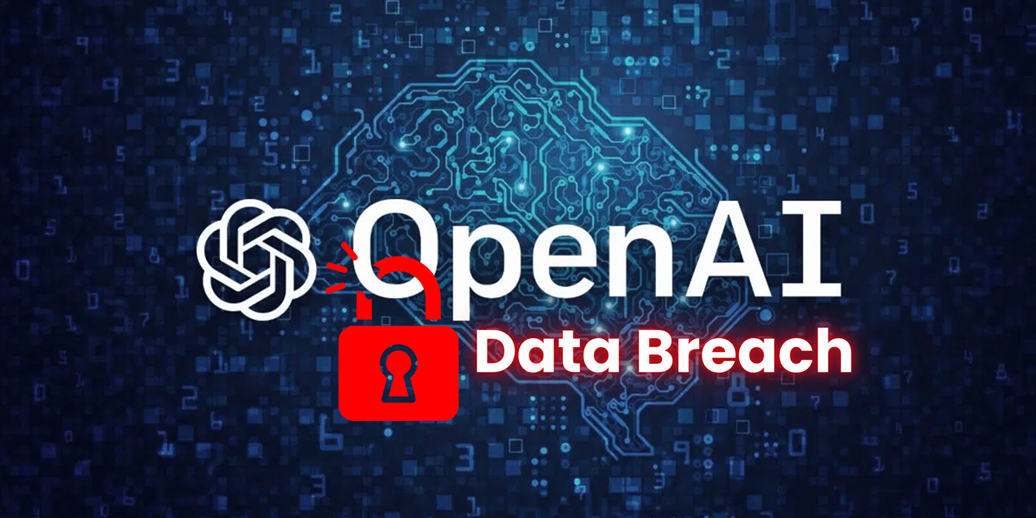- Email: info@clearinfosec.com
- 1800 760 5656

According to Bleeping Computer, sources indicate that OpenAI may have suffered an internal security incident that led to unauthorized access to proprietary research and discussions. SecurityWeek further reported that the breach could involve leaked employee credentials, raising concerns about insider threats or phishing attacks targeting OpenAI personnel.
According to a report by CyberDaily, an anonymous source has claimed to have accessed OpenAI’s internal discussions and proprietary information. The details of the breach remain unclear, but there are indications that certain confidential messages and internal documents may have surfaced on underground hacking forums. The anonymous threat actor advertised their haul on a dark web forum, stating, “I have more than 20 million access codes to OpenAI accounts. If you want, you can contact me – this is a treasure, and Jesus thinks so too.” They also expressed concerns about OpenAI potentially auditing accounts in bulk, implying that their password might be exposed during such checks.
Threat actor’s claims on an underground forum (Source : HackManac)
The credentials, comprising email addresses and passwords, are reportedly being offered for sale at minimal prices. While the authenticity of these claims remains unverified, the sheer volume of purportedly compromised accounts has raised alarms among cybersecurity experts and users alike.
As of now, OpenAI has not issued an official statement confirming or denying the alleged breach. In similar situations, organizations typically initiate thorough investigations and collaborate with cybersecurity experts to assess the validity of such claims and mitigate potential damages.
If the alleged breach is genuine, it could have far-reaching implications for OpenAI and the wider AI industry. Some of the key risks include:
One of the biggest concerns in this scenario is the potential exposure of OpenAI’s proprietary algorithms, research, and AI training data. AI companies invest years into developing innovative models, and if their intellectual property is leaked, it could lead to unauthorized replication or misuse.
If customer or user data was accessed, OpenAI could face severe regulatory scrutiny. With strict data protection laws such as GDPR in Europe and CCPA in California, any mishandling of personal data could result in significant legal and financial consequences. Reports indicate that up to 100,000 user accounts may have been affected, raising serious privacy concerns.
A cybersecurity incident of this scale could erode trust among OpenAI’s customers, partners, and investors. AI companies, particularly those working with enterprises and governments, must maintain high security standards. Any sign of vulnerability could make potential clients hesitant to adopt AI-driven solutions.
Given that OpenAI collaborates with governments and large enterprises on AI research, a data leak could have national security implications. Sensitive AI advancements in areas like cybersecurity, automation, and defense could fall into the wrong hands, leading to geopolitical concerns.
If adversaries gain access to OpenAI’s proprietary AI models, they could manipulate the datasets or tweak the training processes to introduce bias, misinformation, or security vulnerabilities. Malicious actors could repurpose AI tools for nefarious purposes, such as generating deepfake content or automating cyberattacks.
Whether or not the OpenAI data breach is confirmed, this incident serves as an essential reminder for AI companies worldwide to reinforce their cybersecurity frameworks. Here are some crucial steps that organizations developing AI should take:
A Zero Trust architecture ensures that no system, user, or device is automatically trusted. Every access request must be verified through authentication and monitoring, reducing the risk of unauthorized intrusions.
Routine security assessments help identify and address vulnerabilities before threat actors can exploit them. Companies should also conduct penetration testing to evaluate how well their defenses hold up against real-world attack scenarios.
Ironically, AI itself can be a powerful tool in cybersecurity. AI-driven security analytics can detect anomalies and potential threats in real time, allowing organizations to respond proactively to cyber risks.
Human error is often a leading cause of data breaches. Organizations must invest in cybersecurity awareness programs to train employees on secure communication practices and access control measures.
AI developers should integrate security into the software development lifecycle (SDLC) by using secure coding practices, regular code reviews, and encrypted storage for sensitive data.
Organizations should proactively monitor dark web forums and underground marketplaces for leaked employee credentials and sensitive corporate data to prevent exploitation. Reports suggest that cybercriminals attempted to sell OpenAI’s stolen data on underground marketplaces, increasing concerns about cyber espionage.
Given the heavy reliance on cloud infrastructure, AI companies must secure APIs, enforce strict access policies, and use multi-layer encryption for data storage and transmission.
The OpenAI alleged data breach, whether real or speculative, underscores the urgent need for robust cybersecurity in the AI industry. As AI technologies become more sophisticated, they also become more attractive targets for cybercriminals and nation-state actors. Organizations developing AI-driven solutions must prioritize security as a fundamental pillar of their operations.
For enterprises relying on AI, the takeaway is clear: Investing in cybersecurity is not just about protecting intellectual property—it’s about ensuring trust, compliance, and the long-term viability of AI advancements. As the AI industry continues to evolve, so must its approach to safeguarding its most valuable asset—data.
Baran, G. (2025, February 6). OpenAI Data Breach: Threat actor allegedly claims 20 million logins for sale. Cyber Security News. https://cybersecuritynews.com/openai-alleged-data-breach/
Copyright © 2026 Clear Infosec. All Rights Reserved.